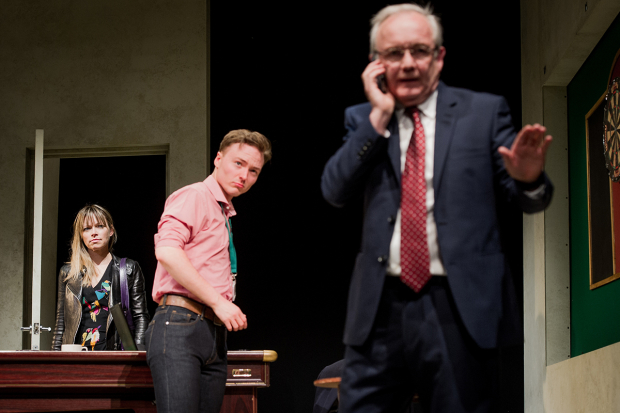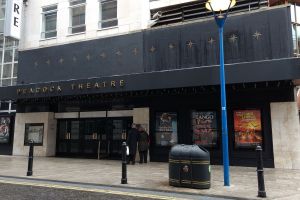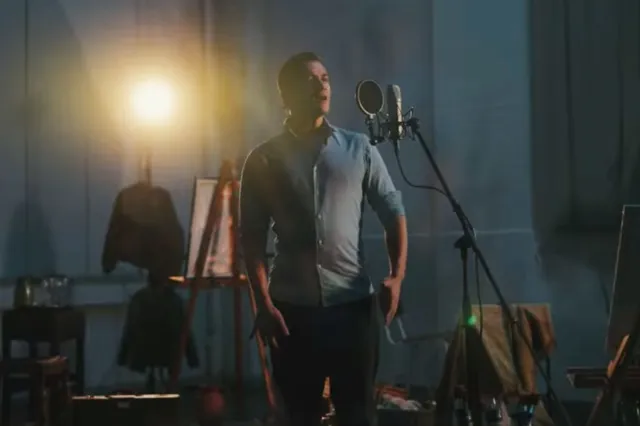Alistair Beaton: How I accidentally predicted Corbyn's crisis
The political sketch writer found himself a little bemused when the events in his new play began coming true

© Robert Workman
The Chambers English Dictionary defines ‘plot’ variously as "a conspiracy: a stratagem or secret contrivance and: the story or scheme of connected events running through a play, novel etc".
Imagine my astonishment to find those two definitions of ‘plot’ suddenly merging. The dust had scarcely settled from David Cameron’s successful attempt to blow up Britain, when I started receiving puzzled enquiries from theatre-goers attending my short play The Accidental Leader currently running at the Arts Theatre in London’s West End as part of A View from Islington North. People couldn’t understand how the play could have been written in 24 hours.
It wasn’t, of course.
Written several months ago, The Accidental Leader tells the tale of a plot to oust a bearded, left-wing allotment-loving politician whose parliamentary party have lost all faith in his ability to win the next election. I wrote the play because I felt the election of Jeremy Corbyn was both a moment of hope (the end of politics as merely a version of management) and a moment of high anxiety (can a decent old leftie backbencher hack it as
a modern leader?) and, like many people, I was unsure about the outcome.
In the play, the plotters meet secretly to arrange the coup. Their strategy is simple. In order to make the event appear spontaneous (yes, they are perhaps a bit naïve) they plan to resign one by one over the space of a single day.
Two of the plotters talk:
JIM: It’s been one of the great weaknesses of our party, Eleanor.
ELEANOR: What has?
JIM: We’re too sentimental. We should be as ruthless as the other lot. They know a loser when they see one. Anyway, tomorrow you say whatever you want. That’s up to you. The main thing is – you resign. By 8pm tomorrow, we’ll have had eleven resignations from the shadow cabinet. He’ll be gone by midnight.
But the leader fights back. His heavies twist arms to breaking point. What happens next I don’t want to say. There are still tickets left for this, the last week of the run, and I’d like to suggest you go along and find out how it ends.
Playwrights, actors and directors can be horribly self-centred and pompous, endlessly prattling on about the importance of theatre in our culture. On the whole I prefer a more modest appraisal of our profession. However, there are times when theatre does truly and suddenly come into its own as a reflection of society. As our political class thrash around, desperately trying to keep up with the enormity of events, it’s maybe good that people have the chance to see a fictional version of the truth being played out on stage and have
time and space to ponder the rights and wrongs of it all. Personally, I suspect Jeremy Corbyn’s attachment to his vaunted ‘huge mandate’ is, increasingly, a cover for something as crude and simple as vanity. If I were writing the play now, I fear it would be much less sympathetic to the man. But I’ll give him this: he’s providing us with the stuff of drama.
Did I know when I embarked on the project that the plot of the play could end up being so eerily similar to what has actually happened? Well, I’d love to lay claim to prescience and a dazzling insight into Labour Party politics, but to be honest, I think I just hit lucky.
As to how the real-life drama ends, well, who knows? But I suspect it is moving from grotesque comedy towards the darkest of tragedies.
A View from Islington North runs at the Arts Theatre until 2 July.
Read our review of A View From Islington North












